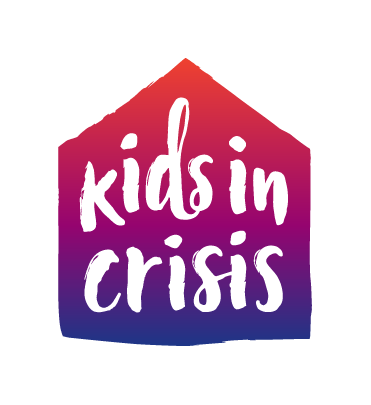Support Your Child’s Mental Health: Why It Starts at Home
At one of the local middle schools here in Greenwich, a TeenTalk counselor recently helped a student—and his mom—breathe again.
It started with the teen showing up every day to talk, little by little letting his guard down. What came next was even more powerful: his mom called. She wanted to know how she could help at home—what to say, what not to say. She was trying, but she didn’t know what to do. So we walked with her. And suddenly, this wasn’t just one kid in crisis—it was a whole family learning how to support their child’s mental health together.
That’s what we do. And if you’re a parent, this is for you.
TeenTalk: Helping Families, One Conversation at a Time
At Kids In Crisis, our TeenTalk counselors are in 18 schools across Fairfield County. Every day, we sit with teenagers who are struggling. Sometimes they’re anxious or overwhelmed. Sometimes they’re angry, lonely, or just tired of pretending to be okay. And sometimes—more often than you might think—they’re quietly hoping their parents will notice.
You don’t have to be perfect. You just have to be present.
And if you’re wondering how to support your child’s mental health, you’re not alone. In fact, most of the calls to our 24/7 Helpline (203.661.1911) are from parents. Not teens. Not school staff. Moms and dads. Grandparents. Guardians. People just like you—trying to figure out what to say, how to help, or who to call.
It’s Not Just the Kids—Parents Need Support, Too
When a child comes to our SafeHaven shelter, we focus on two things: first, making sure the child is safe. Second—and just as important—we work closely with parents and caregivers to prepare for their child’s return home. Because when that day comes, the child isn’t just returning to a place. They’re returning to people. And those people need to be ready to support their child’s mental health with real, practical, loving care.
You don’t need a degree in psychology to create an emotionally safe home. You need tools, consistency, and someone to walk alongside you. That’s where we come in. TeenTalk counselors don’t just work with students—they work with families, offering resources, guidance, and check-ins well after the school day ends.
Three Ways to Support Your Child’s Mental Health at Home
Here are three powerful, simple ways to build a more emotionally supportive home environment:
1. Normalize talking about feelings.
Your child doesn’t need you to fix everything—they need to know it’s okay to feel everything. Try saying, “You seem frustrated. Want to talk about it?” Or even, “I’ve been feeling anxious today, too.” You’re teaching them that emotions aren’t problems—they’re part of being human.
2. Create rituals of connection.
Dinner at the table. A walk after school. Ten minutes of no-phone time at bedtime. These small but steady moments of togetherness build trust. And when kids feel emotionally safe at home, they’re more likely to open up when something’s wrong.
3. Encourage your child to talk with a trusted adult.
This is the whole idea behind having our TeenTalk counselors in schools. Sometimes, kids can’t say everything to you, but that’s okay. What matters is that they say it to someone. That’s why we’re there. TeenTalk counselors are trained, caring adults and kids can turn to during the school day in a safe and familiar space. You’re not stepping away when you encourage your child to talk to a TeenTalk counselor, a coach, a therapist, or a trusted adult. You’re stepping up. You’re showing your child that getting help is a sign of strength, not weakness. And when that message comes from you? It sticks.
Let’s Make This a Daily Practice
Let’s not wait for the next crisis. Let’s make mental health part of daily family life.
If you’re reading this and wondering how you can support your child’s mental health, start with a conversation. Start with presence. Start with listening. And if you want to go further—if you want to help other families in your community—you can.
If you’re reading this and wondering how you can help kids in our community, you can start with your own family. And then, consider helping others too. A gift to Kids In Crisis makes this work happen. Your support keeps our TeenTalk counselors in schools, our 24/7 Helpline open, and our SafeHaven shelter running for kids who have nowhere else to turn. It’s not just a donation—it’s action.
And we’re here—any time, any day—if you need someone to talk to.

